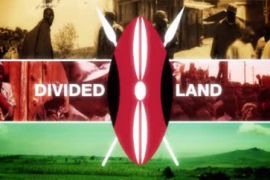
Divided Land
Examining Kenya’s tribal, social and economic divisions.
 |
On December 27, Mwai Kibaki, the Kenyan president, takes Kenya to the polls.
He was elected in 2002 on a wave of public euphoria that ended 40 years of one party rule. On that day, Kibaki promised that the country had changed forever and called on all Kenyans ‘to end corruption as a way of life’, thereby signaling a break with the scandal-ridden government of Daniel Arap Moi, the former president.
Five years later, these aspirations remain elusive. Kenya has experienced an economic boom since 2002 but little of this wealth has filtered down to the majority who still survive on less than two dollars a day. Kibaki’s government is itself now accused of corruption and his former rival Moi now actively campaigns for Kibaki’s re-election.
Raila Odinga, Kibaki’s right hand man in 2002, now challenges him for the presidency. Odinga promises that this time there will be real change, an end to corruption and equal treatment for all irrespective of wealth, religion or tribe. Kenyans must decide if they are prepared once again to put their faith in a leader who promises a clean break from the past. As Kibaki has discovered however, the country’s problems are not easy to solve.
Land
 |
Kenya’s rapidly expanding population is fighting for the country’s scarce resources of land and water.
The upcoming election has exacerbated this problem leading to clashes across the country, many along tribal lines.
In Kurosoi, the Kalenjin tribe, who consider the land to be theirs, have come in to conflict with the Kikuyu farmers who have been living in the area for a generation. Twenty-six people have been killed in the violence and more than 10,000 made homeless.
Kenya’s booming economy, based mainly around flower farming and tourism, is also generating conflict. At Lake Naivasha in the Rift Valley, Kenya’s nomadic Masai believe that their land has been taken by both the flower farms and members of the political class on whose huge estates they are now forced to trespass to find water and grazing for their cattle.
For those driven off the land, there is little choice but to move into the cities. For most, this means moving to Nairobi’s two super slums, Kibera, the largest in Africa, and Mathare.
Violence
 |
In Mathare, the last decade has seen the rise of the Mungiki, a Kikuyu group which some see as an inevitable response to Kenya’s problems.
The group argues that it provides both employment and hope to a generation of young men but critics argue that it is little more than a violent Kikuyu gang.
In June this year, a series of well publicised beheadings were blamed on the Mungiki and brought a swift and brutal police response. The Mungiki were driven out of the slum but the problems that led to the rise of the group have not been tackled and they are slowly returning to Mathare.
Police
Human rights groups claim that, in the last three months alone, 500 bodies have been dumped in the N’gong hills, an hour outside Nairobi. They have raised concerns that in seeking to solve the Mungiki problem the police have begun what is effectively a ‘dirty war’.
The police deny this but in recent months the number of families reporting the disappearance and murder of their sons has grown to the point where it can no longer be ignored.
Whoever wins Kenya’s 2007 election will inherit a divided land. Divided between rich and poor, between landed and landless and between one tribe and another. Recent history suggests that change will not come easily.
Watch part one of this episode of Divided Land on Youtube
Watch part two of this episode of Divided Land on Youtube
Watch part three of this episode of Divided Land on Youtube
Watch part four of this episode of Divided Land on Youtube
Divided Land aired Friday December 21, 2007
To leave a comment click on ‘Send your feedback’ at the top of the page
Watch Al Jazeera English programmes on YouTube
Join our debates on the Your Views page